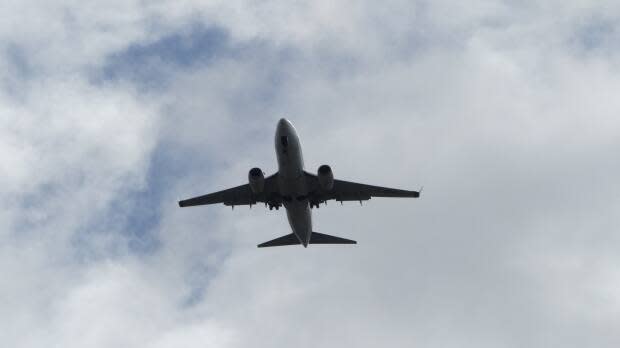How do you stop a time change? In Yukon, it's taken time
How do you redefine a time zone?
In the Yukon, it's been "a real trip," said government analyst Andrew Smith.
Yukon is moving to permanent daylight time this year, meaning the clocks won't "fall back" an hour on November 1 like in most of Canada.
But preparing for the change — or lack thereof — has taken, well, time.
"It has been a real adventure to figure out how exactly time works, who controls time, what time is," said Smith, who is leading the government's preparations.
"Yukon standard time" has always existed as a time zone, but the territory has previously aligned with Pacific standard time.
This winter however, Yukon will be an hour ahead of Vancouver, two hours ahead of Alaska, and an hour closer to eastern regions.
British Columbia was poised to eliminate seasonal time changes along with the Yukon, but has held off this year amid the pandemic, Smith said.
"It is unfortunate that it lined up this way," said Smith, who believes BC and parts of the United States will follow suit next year. "We did think that they were going to come through on that commitment this year."

In order to change Yukon's time zone online, Smith said he had to follow "the bread crumbs" to track down the international time zone databases. He says he's been in touch with all the telecom companies in the territory, trying to ensure phones and computer clocks don't fall back an hour on November 1.
He urged Yukoners to ensure their phones have the latest updates, and are set to "Yukon standard time" or "Whitehorse time" on Apple devices.
Air North changing its flight schedule
The government also spoke with local airline Air North, which had to reschedule its flight routes to accommodate the time change, said chief commercial officer Benjamin Ryan.
For most travellers, it will mean more time to sleep in the morning.
Morning flights from Whitehorse to Vancouver will leave at 8:30 a.m. instead of at 7:30 a.m., he said.
Meanwhile, winter flights from Whitehorse to Dawson City, Yukon, will also be an hour later because the Dawson airport can only operate in the daylight.

"What was frustrating was not knowing for sure what BC and other jurisdictions were going to do," said Ryan, who said they were uncertain about British Columbia's position until a few weeks ago.
Ryan said the time change also means there will be less time to deliver local cargo when flights get to Whitehorse in the afternoon.
"There's a lot of little quirks to it," said Ryan. "I'm confident we can make this work ... hopefully there's a couple little benefits that come out of it from a scheduling standpoint."
Yukoners showed overwhelming support for eliminating seasonal time changes earlier this year, with 70 per cent of survey respondents wishing to stay on "permanent" Pacific daylight time. The change will mean more daylight in the evening.
Smith said the government has been in touch with its neighbours, letting them know their "time relationship" will be different.
He believes BC and parts of the United States will follow suit next year so clocks on the pacific coast will line up.
British Columbia will "get there eventually to join us," he said. "But in the interim the winters might just be a little bit awkward on maybe arranging your phone calls."
Most of Saskatchewan already does not observe seasonal time changes.
Smith said he expects to see permanent time "snowball," as more jurisdictions ditch the time change.


